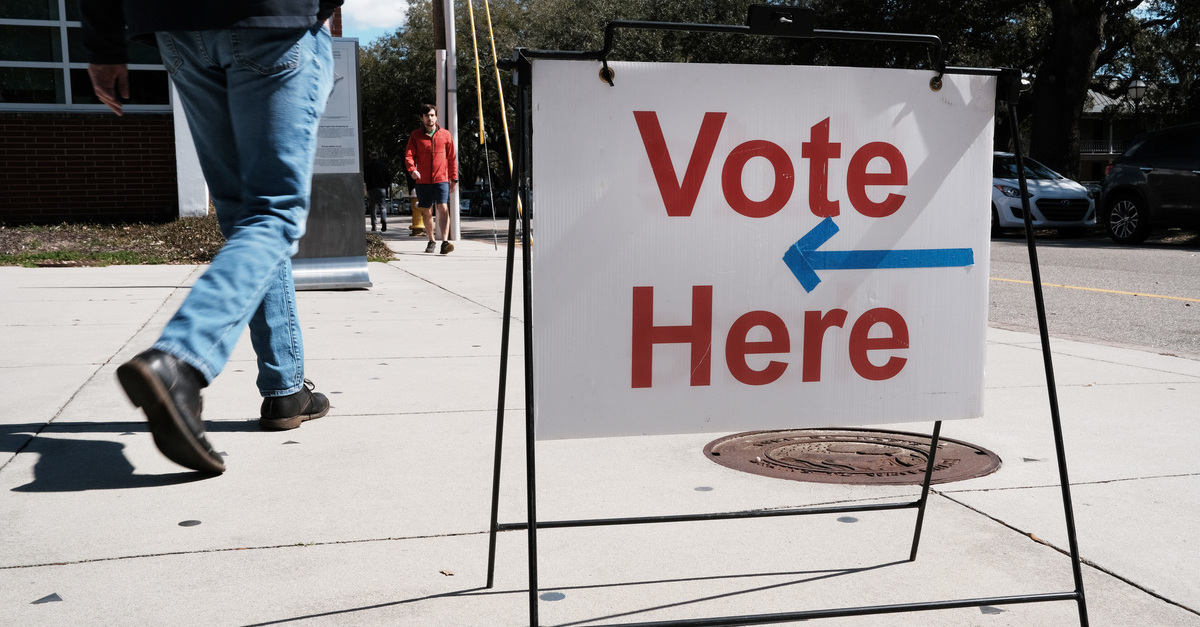
A federal judge on Friday rejected the Georgia Republican Party’s request to prevent newly registered voters from casting a ballot in the state’s upcoming Senate runoff elections, reasoning that the party lacked standing. The judge denied a request for temporary restraining order prohibiting new residents who voted for a Senate candidate in another state from voting in the Jan. 5 elections, according to Georgia Public Broadcasting.
The lawsuit—filed Thursday in the U.S. District Court for the Southern District of Georgia by the state GOP, the National Republican Senatorial Committee, and the campaigns of Kelly Loeffler and David Perdue—sought to prohibit new Georgia residents who voted for a 2020 Senate candidate in a different state from voting in the January runoffs. The plaintiffs also asked the court to direct election officials to segregate all ballots cast by persons who registered to vote in the state between Nov. 4 and Dec. 7.
According to the report, U.S. District Judge Lisa Godbey Wood, an appointee of George W. Bush, ruled on the request following a hearing Friday, telling the Republican plaintiffs that their request to change the rules after more than a million early ballots had been cast would only cause confusion.
Wood also pointed out that there was no way for the GOP to prove that a newly registered voter in Georgia had voted for a 2020 Senate candidate in another state during the same election cycle.
“Right now, all you can say is somebody who voted for something in one state, and somebody wants to vote for something else in another state,” she said, according to Georgia Public Broadcasting. “But I don’t see any proof that anybody voted for U.S. Senator twice.”
The GOP’s lawsuit, which claimed that it was “illegal for an individual to vote in the Georgia run-off if he or she already voted in 2020 for U.S. Senator in a different state,” was also based on a misreading of the Voting Rights Act.
The complaint selectively quoted from the statute, stating: “The prohibition . . . applies with respect to any general, special, or primary election held solely or in part for the purpose of selecting or electing any candidate for […] Member of the United States Senate […].”
The subsequent statutory provision, however, clarifies when such a prohibition does not apply to voters: “As used in this subsection, the term ‘votes more than once’ does not include […] the voting in two jurisdictions under section 10502 of this title, to the extent two ballots are not cast for an election to the same candidacy or office.”
In an email to Law&Crime earlier on Friday, University of Buffalo School of Law professor and election law expert James Gardner said Republicans’ interpretation of the law struck him as “absurd.”
“It is possible that Georgia’s unusual use and timing of runoff elections might make it theoretically possible for someone to legally vote for Senator in one state and then also legally vote for Senator in Georgia, and perhaps as a matter of policy Georgia shouldn’t make that possible, but I see no reason to think federal law prohibits states from exercising their discretion in this way,” he wrote.
Harvard Law School professor Nick Stephanopoulos, who specializes in election law, similarly told Law&Crime that the complaint appeared to misstate the relevant law.
“The statute makes clear that it’s not double voting ‘to the extent two ballots are not cast for an election to the same candidacy or office.’ That would be precisely the situation of someone who moved to Georgia and registered after the general election,” he said. “That person would not have cast two ballots in ‘an election to the same candidacy or office’ — namely the Georgia Senate election.”
This is the third Republican defeat in the Peach State over the last two days.
[image via Spencer Platt/Getty Images]